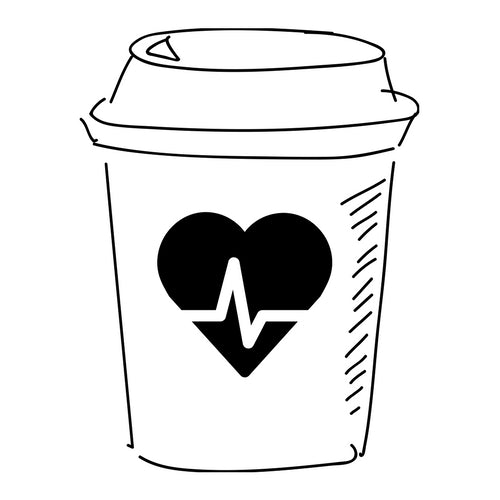
Good news for all daily coffee consumers: Your coffee addiction may not be a problem at all – it might actually be helping to keep you healthy. Recent studies by researchers at UCLA, BIDMC, Harvard School of Public Health, and other research facilities have gathered significant quantities of data that support the idea of caffeine benefits in everything from heart health to basic nutrition.
Let’s start with the basic nutrition: SelfNutritionData has broken down the vitamins found in a single cup of coffee to the following: vitamin B2, vitamin B5, manganese and potassium, and vitamin B3 – all of these being incredibly important for your daily diet. In addition, Joe Vinson, Ph.D, the lead researcher on one study at the University of Scranton concluded that coffee is the main source of daily anti-oxidants Americans receive. The study does, however, dictate that this is only meant in moderation, and that one to two cups of coffee is more than enough to receive the nutritional benefits. Much more than that, and you run the risk of facing some possible negative side effects.
However, if one sticks to a limited dosage of the daily coffee pot – along with limited to no use of sugar and creamer– they can experience benefits including liver cancer and disease prevention, according to researchers at Milan's Istituto di Ricerche Farmacologiche Mario Negri and the Kaiser Permanente Medical Care Program. The researchers at Kaiser concluded that caffeine can help lower the event of liver disease by up to 22%, while the researchers in Milan discovered that coffee consumption lowers the chance of liver cancer by 40%, with the number growing higher with supplemental coffee intake until about three cups daily.
The researchers at BIDMC and Harvard School of Public Health continued this trend with heart failure and found that Americans who drank two cups of coffee a day observed a 11% lower risk of dying from heart failure.
In addition, caffeine has also shown to have a negative correlation with Parkinson’s disease, Alzheimer’s, depression and diabetes risk. Coffee has also been shown to help burn fat and aid physical performance. A 2007 edition from the Journal of Pain even concluded that caffeine helps to reduce muscle pain. And then there are the obvious benefits: higher energy levels and a more alert state.
While it’s important to note that there are some negative side effects associated with too much caffeine consumption such as insomnia and anxiety, these can easily be avoided by monitoring how much coffee one drinks in a day. But with moderation in mind, it’s clear that coffee remains one of the brightest points of our day –and that’s something we can tip our cups to.
